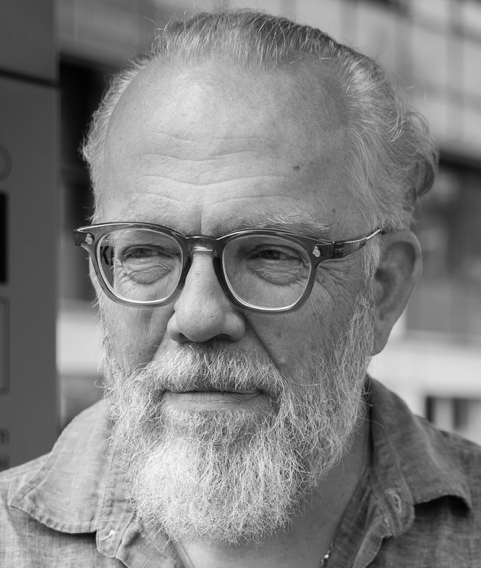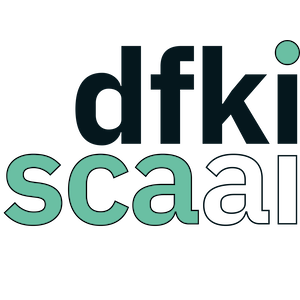Members
-

Dr. Andrey Girenko , R&D Administrator, EU Funding. With PhD in Computer Sciences (1990) Andrey started his first EU-funded project back in 1994. Since 2001, he has been an EU project manager both at the European Research and Project Office GmbH (until 2008) and at DFKI (German Research Centre for Artificial Intelligence, ongoing). He has acquired, managed and evaluated more than 100 European projects in different programmes and delivered more than 30 training workshops on research and innovation management around the world. From 1998 till 2004 he served as an evaluation and quality assurance expert within the World Bank’s Innovation Education Project. Founder of three start-up companies.
In the group: Proposal evaluation expert and rapporteur for the EC within the 7th Framework Programme (FP7). Currently serves as a proposal evaluation and technical due diligence expert within activities of European Institute of Innovation and Technology (EIT), KIC Manufacturing.
Google Scholar: ah7wW9gAAAAJ
andrey.girenko@dfki.de
-

Dimitra Tsovaltzi is since 2020 a Senior Researcher at DFKI in Saarbrücken, Germany. In 2016, she was awarded the german degree of Habilitation (post-doctoral degree) for the Learning sciences from the Educational Technology and Knowledge Management department at Saarland University, where she held a faculty position until 2019. Before that, in 2010, she was awarded her interdisciplinary Ph.D. in automating feedback through schema theory for technology enhanced learning from the department of Informatics in collaboration with the Learning Sciences, Saarland University, and worked as part of the E-Learning group at DFKI.
Research Interests: Dimitra is interested in shaping societal change through technological support for group processes. She has been working on designing technologies to support the interplay of socio-emotional and cognitive factors for learning and group interaction, focusing on awareness tools, possibilities for dynamic scripting.
In the group: Dimitra works on models for socio-emotional interactions to leverage socio-emotional awareness for affective computing. This includes conceptual and empirical research taking into account technical requirements for development.
Google Scholar: kvlXF7cAAAAJ
OrcID: 0000-0002-1670-5799
dimitra.tsovaltzi@dfki.de
-

Fabrizio Nunnari got a Ph.D. in Computer Science in 2005 on real-time 3D data visualization. From 2005 to 2012, he worked between academia and industry as research programmer. Since 2013, Fabrizio is a senior researcher at DFKI.
Research Interests: Sign Language Production and Corpora, real-time 3D Interactive Applications, Generation and Animation of Virtual Humans.
In the group: Fabrizio takes care of everything related to the generation and animation of virtual humans and on the animation of virtual interpreters for Sign Language. Also working on the intersection between virtual humans and personality perception and on the use of machine learning for the interpretation of human behaviour.
Home Page: http://www.dfki.de/~fanu01/
Google Scholar: rZVuaTIAAAAJ
OrcID: 0000-0002-1596-4043
fabrizio.nunnari@dfki.de
-

Jan Alexandersson is a Research Fellow and Principal Researcher at the Cognitive Assistants department at the German Research Center for Artificial Intelligence GmbH (DFKI) in Saarbrücken, Germany. His DFKI career started in 1994, he founded the DFKI competence Center for AAL after his PhD (2003) in 2006. His research focuses on AAL, Accessibility, Interdisciplinary and User-Centered Design & Development predominantly in the health domain. He has coordinated and/or participated in national and international research and industrial projects. He has founded two startups, given lectures and keynotes, taken advising roles in projects and organizations.
Research Interests: Ambient Assisted Living & the combination services and technology, AI in health, accessibility, AI for societal scenarios, interdisciplinary R&D, user-centred design and other research methodologies, multimodal human-computer interaction.
In the group: Group leader, project and research management.
Google Scholar: zPMZPJAAAAAJ
OrcID: 0000-0002-6676-3145
-

Jochen Britz is a former researcher and senior software engineer in the Cognitive Assistants Department at DFKI. He completed his master’s degree in the engineering course Computer and Communication Technology (CuK) at Saarland University in 2013 with an honor’s degree. Since 2012 he has been working in the Cognitive Assistants research department (COS, former IUI), and is part of the Competence Center Ambient Assisted Living (CCAAL) as a Researcher. In 2022 he changed to the software engineering track to focus more on the implementation of secure research environments at the DFKI.
Research Interests: Security architectures of software platforms with a focus on AAL, Digital Health, Smart Home, Smart Energy and Smart Services.
In the group: Responsible for the design and management of the Secure Machine Learning Architecture (SEMLA) and the associated projects and research. Another focus of him is IT administration in the group and software development in industry projects.
Google Scholar: N-23WrUAAAAJ
OrcID: 0009-0000-5727-1045
Web of Science ResearcherID: MFJ-5678-2025
jochen.britz@dfki.de
-

Mansi Sharma is a researcher and doctoral candidate in the Cognitive Assistants Department at DFKI and Saarland University. Before joining DFKI, Mansi was awarded a Graduate Fellowship from Saarland University to support her research. She earned her master’s in computer science from Saarland University and her bachelor’s degree from NIT Raipur, where she received a departmental silver medal for academic excellence. Her research focuses on human intent recognition and analyzing human behavioral patterns. In 2023, Mansi visited NII Japan as an intern. Recently, she was selected as one of 200 researchers worldwide to participate in the 11th Heidelberg Laureate Forum.
Research Interests: Mansi conducts research integrating human behavior, machine learning, and human-computer interaction, focusing on how intelligent systems can effectively understand and adapt to human needs.
In the group: Mansi works on improving human intent recognition by integrating physiological signals like EEG, eye-tracking, and gestures in scenarios such as visual search tasks and microsurgical interactions. Her work aims to enhance the accuracy of intent recognition systems for applications in cognitive assistants, healthcare, and assistive technologies.
Google Scholar: jq3pLZ0AAAAJ
mansi.sharma@dfki.de
-

Maurice Rekrut is a Senior Researcher at the German Research Center for Artificial Intelligence (DFKI). Since 2013 he has been working at DFKI in the Cognitive Assistants research department as a Software Engineer and was involved in various national and international research projects. In 2018 he changed to the researcher track to persue a PhD in Computer Science under the supervision of Prof. Dr. Antonio Krüger which he received in 2023 for the thesis “Leveraging EEG-based Speech Imagery Brain-Computer Interfaces”. His research focuses on Brain-Computer Interfaces and their application in real-world scenarios and he has been leading several national and international research projects concerning this topic as for example EXPECT, BISON or NEARBY. Since 2020 he is the head of the Cognitive Assistants BCI-Lab which is concerned with developing BCIs for out-of-the-lab use, in various application scenarios, from aviation and automotive, over health and well-being up to industrial use cases.
Research Interests: Neural Human Machine Interaction, Neuroadaptive Systems and Neurodiganostics
In the group: Responsible for the management of the Cognitive Assistants Brain-Computer Interface Lab (CABCIL) and the associated projects and research. Focus on EEG-based Brain-Computer Interfaces for workload modelling, imagined/spoken speech detection and neurodiganostics/-treatment in the field of ADHD.
Google Scholar: KUtr1GUAAAAJ
maurice.rekrut@dfki.de
-

Moritz Wolf is a Researcher at DFKI since 2019. He holds a Master’s degree in Language Science and Technology (Saarland University, 2021).
Research Interests: Interactive Machine Learning, Efficient annotations, Computational Linguistics, User-centred Design.
In the group: Moritz has knowledge in a variety of fields, helping out with implementation wherever needed. His current focus is on active learning and efficient annotations and teach-by-demonstration. Moritz also offers consulting for small and medium enterprises (SME) on how to use AI over the project RZzKI (https://rzzki.de/).
Google Scholar: VzMaddYAAAAJ
moritz.wolf@dfki.de
-

Patrick Gebhard Patrick Gebhard is a Research Fellow and Principal Researcher at the German Research Center for Artificial Intelligence GmbH (DFKI) in Saarbrücken, Germany. Since 2024, he is co-head of the Social Cognitive Affect AI (SCAAI) group in the Cognitive Assistants department. His research focuses on Affective Computing, a subfield of Artificial Intelligence centered on human emotional intelligence, mental processes, and its employment for human-computer interaction. He has fully coordinated or led work packages in several national and European research projects and has a long-term involvement in several research related activities and communities. He acquired long-term experience with computational models of affect, interpersonal relationship, trust, and social behaviour and their use for modelling and evaluation of socially interactive agent systems in different domains.
Research Interests: Computationally modelling of affect, interpersonal relationships, and social behaviour, socially interactive agents, social training, therapeutic assistive systems.
In the group: Group leader, projects and research management. Responsible for computational models of emotion, emotion regulation, and social behavior models for socially interactive agents.
Home Page: https://www.dfki.de/~gebhard/
Google Scholar: VCaHJdIAAAAJ
OrcID: 0000-0002-5566-4520
-

Tanja Schneeberger completed her Master’s degree in Psychology in 2014 in the Department of Industrial and Organizational Psychology at Saarland University. Following that, she became a part of the ACG in 2015, having previously worked in the Automotive Group at DFKI. Throughout her tenure at the ACG, Tanja obtained her PhD in 2023. Her doctoral thesis focused on exploring affective reactions towards socially interactive agents and their computational modelling.
Research Interests: Relationship between Human and Socially Interactive Agent.
In the group: In experimental studies, in which we transfer aspects of human-human-interaction to human-agent-interaction my goal is to find out which role socially interactive agents can play for humans and how a successful relationship between an agent and a human can be created.
Google Scholar: ogfKtbcAAAAJ
OrcID: 0000-0002-7247-6978
tanja.schneeberger@dfki.de
Past Members
-

Benedikt Wirth is a Senior Researcher at the German Research Center for Artificial Intelligence GmbH (DFKI) in Saarbrücken, Germany. He holds a master’s degree in psychology (University of Bamberg, 2014), a PhD in psychology (Saarland University, 2018) and a master’s degree in data science (Albstadt-Sigmaringen University, 2024). Before joining DFKI in 2023, Benedikt worked as a post-doctoral researcher at the Cognition & Action Lab at Saarland University.
Research Interests: Benedikt is interested in various aspects of cognition and emotion both in natural (i.e., human) and artificial (i.e., deep neural networks) intelligence such as face recognition, visual attention, and social processing.
In the group: Benedikt is responsible for projects thematically located at the intersection of AI and psychology/psychiatry. These projects include digital phenotyping of psychiatric disorders based on patient-therapist interactions, prediction and prevention of post-operative mental illness, and emotion recognition from EEG signals.
Google Scholar: JxxJkaYAAAAJ
OrcID: 0000-0001-8039-7316
benedikt.wirth@dfki.de
-

Dr. Philipp Müller is a Senior Researcher in the Cognitive Assistants Department at DFKI. He authored 40 peer-reviewed publications at computer science and psychology venues, including top conferences such as CHI, NeurIPS, ICCV, and ACM Multimedia. Since 2021, he is an organiser of the yearly ACM Multimedia Grand Challenge “MultiMediate” on automatic social behaviour understanding. He conducted his PhD studies within the Cluster of Excellence on Multimodal Computing and Interaction and at the Max Planck Institute for Informatics in Saarbrücken. Before joining DFKI in 2020, he worked as a researcher at the University of Stuttgart.
Research Interests: He conducts research at the intersection of machine learning, cognitive science, and human-computer interaction.
In the group: Presently, his focus is on improving multi-modal human behaviour analysis, with applications in a variety of social situations, including patient-clinician interactions and group discussions.
Google Scholar: RmcYRGAAAAAJ
philipp.mueller@dfki.de
